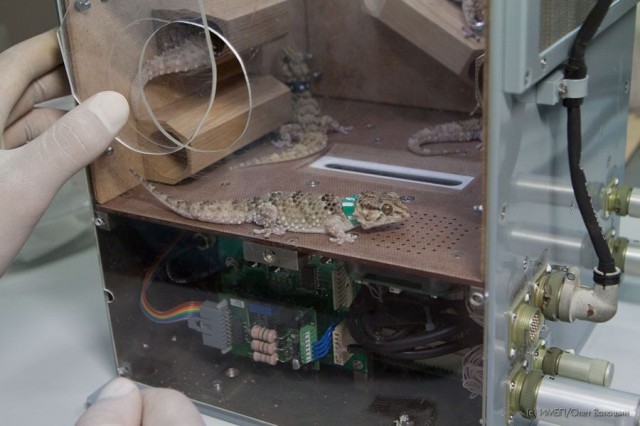Tragedy: Russia’s orbiting zero-g sex geckos have all died
Ars Technica » Scientific Method 2014-09-02

Several weeks back, we learned of the harrowing tale of the zero-g sex geckos: blasted into low Earth orbit aboard the Russian Foton-M4 satellite as part of a biological experiment to study reproduction in microgravity, the sex geckos mission was endangered almost from the beginning when Russian space agency Roscosmos lost positive control over the geckos’ spacecraft. Roscosmos was able to receive telemetry, but it couldn't send commands. Without ground control, the Foton-M4 would slowly decay out of orbit and enter the atmosphere uncontrolled.
Fortunately, Roscosmos was able to reestablish its uplink only a few days later, and the experiments continued. Unfortunately, as is so often the case with pioneers who push forward the boundaries of scientific knowledge, all five of the geckos have died.
Their passing was discovered during recovery operations for the Foton-M4 spacecraft, which successfully de-orbited and landed as planned in southern Russia yesterday afternoon. When the intrepid reptiles’ enclosure was examined, it was found to contain five tiny mummified gecko bodies. Preliminary indications are that the geckos all froze to death.
Read 3 remaining paragraphs | Comments